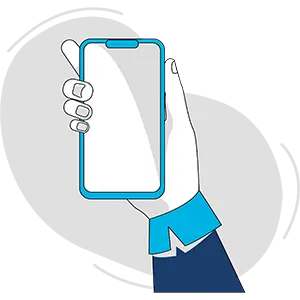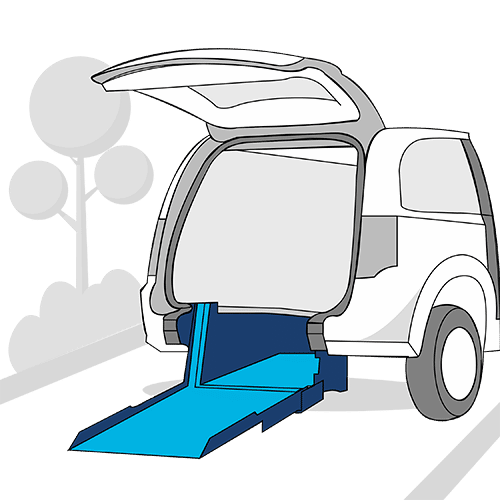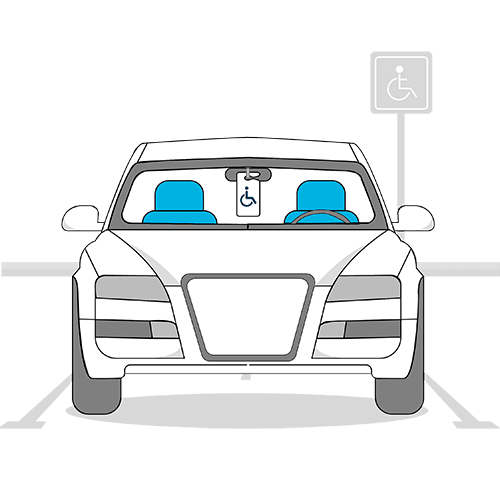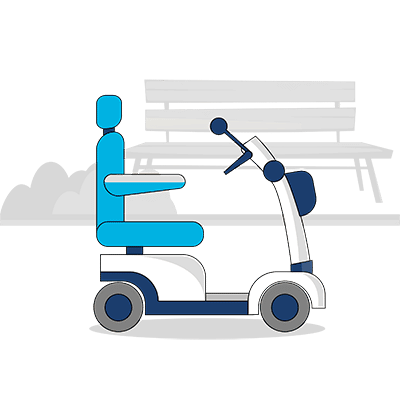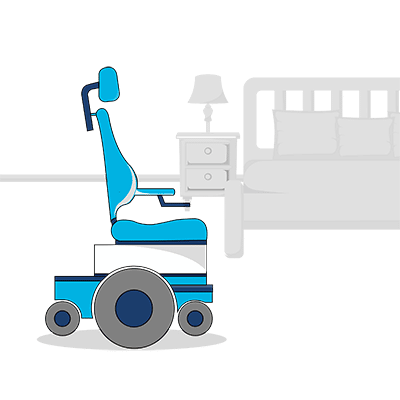Invisible Disabilities Week, which takes place on 17 to 23 Oct 2021, is the perfect time to shed more light on how invisible disabilities affect Australians. To do this Blue Badge Insurance conducted a survey that explores the life experiences of 823 people living with disabilities that aren’t so obvious.
To be eligible for the survey they needed to be ‘A person with an ‘invisible disability’ – a health condition that is often indiscernible to others‘. At least five million people in this country live with an invisible disability and according to our results this significant proportion of Australians are often treated with intolerance, suspicion, disbelief, and a general lack of respect.
This type of treatment implies ‘If we can’t see your disability, it’s not real.’ However, the effects of invisible disability can be far-reaching, and our survey highlights just this. Read the full story below and share it on social media to raise awareness for Invisible Disabilities Week. You can also read part two and part three to find out more statistics from our survey.
Invisible Disabilities Week Survey results
Invisible disabilities come in many forms, from anxiety to heart conditions to acquired brain injury, and can result in many limitations with daily living.
The 15 most common disabilities our respondents lived with are:
- Anxiety – 50% of respondents
- Chronic pain – 46%
- Arthritis – 32%
- Balance difficulties – 22%
- Fibromyalgia – 21%
- Autism – 19%
- ADHD/ADD – 18%
- Chronic Fatigue Syndrome – 17%
- Breathing difficulties – 14%
- Diabetes – 14%
- Heart condition – 10%
- Spinal disease – 8%
- Hearing impairment – 8%
- Sensory Processing Disorder – 8%
- Vision impairment – 7%
Highlighting the breadth of disabilities in existence, despite being provided 27 possible answer options to the ‘Please select the disability or disabilities and/or any other health conditions you have’ question, 44% of respondents indicated they lived with ‘other disability’ instead or as well.
For many people, symptoms often come without warning at random intervals. For some, they’re constant. When it comes to movement limitations, nearly half of our respondents (47%) say invisible disability affects their mobility on a permanent basis.

Living with an invisible disability
Many of your colleagues, neighbours and even people in the supermarket queue live with and deal with invisible disabilities. And it’s often in public spaces where they face the biggest challenges…
Accessible parking bays
Accessible parking spaces are designed to provide easier access to key locations for people with limited mobility. They’re closer to building entrances/exits to reduce the extent of pain, fatigue and other mobility difficulties for people with disabilities who access these areas. Australians with a disability parking permit have permits for these restricted parking spots because they need them to make life easier.
Unfortunately, parking lots are hotspots for invisible disability discrimination, where so-called “good Samaritans” feel it’s their job to judge who uses the designated accessible bays. And, it seems, with little to no knowledge of disabilities that aren’t visible to the naked eye.
Don’t have an invisible disability yourself? Perhaps imagine trying to walk around with permanent broken bones, a 24/7 migraine or third degree burns… having to go about daily life with little relief from this.
Each move you make, from putting on your seatbelt to walking from your car to the shop entrance can be challenging. Now imagine, that even as you overcome such obstacles, possibly with no help, a stranger accosts you to question the validity of your actions and status.
According to our survey, this is a big issue in Australia. Find out how big an issue…
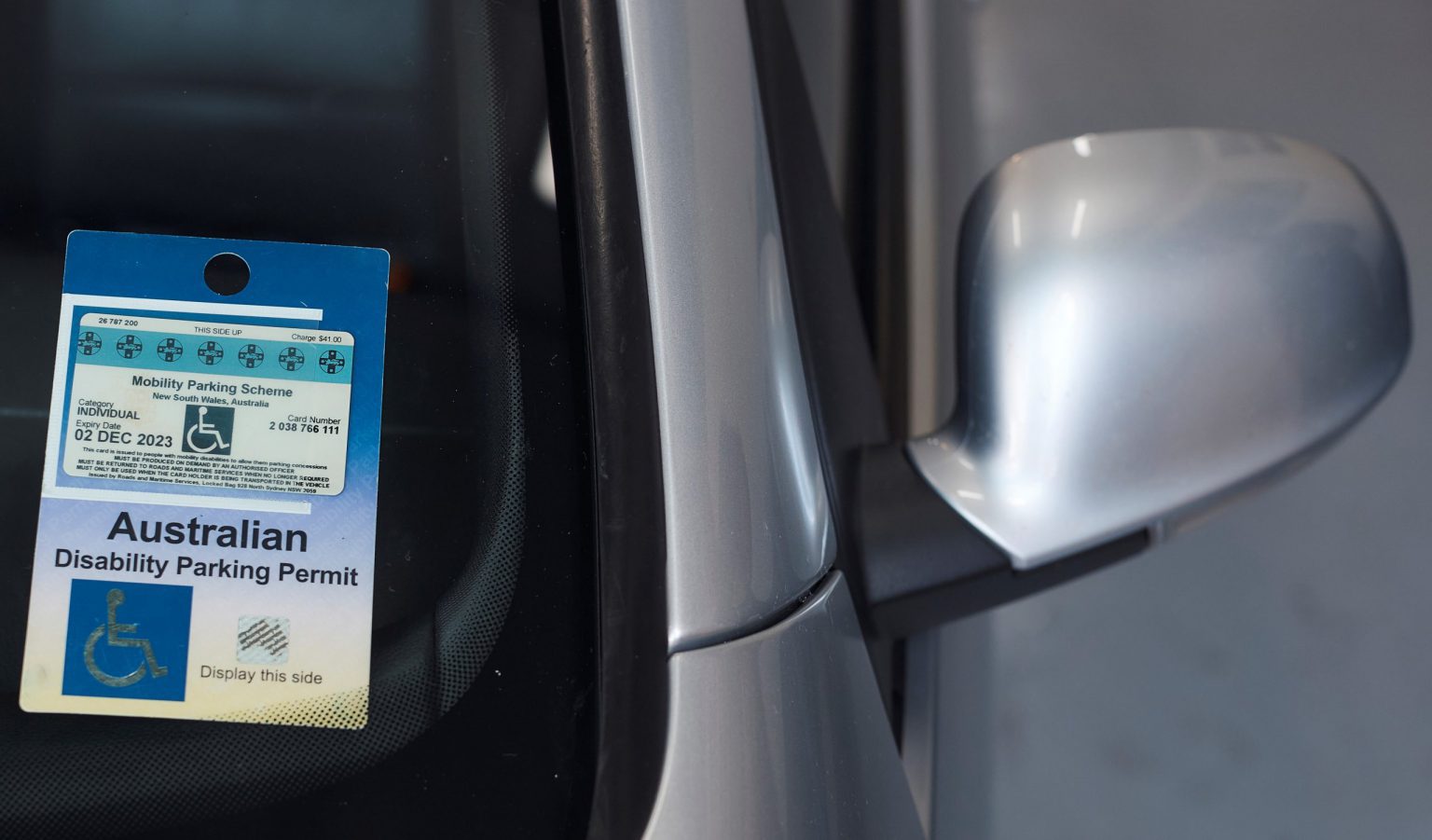
Invisible Disabilities Week survey highlights incidents of harassment
When you see someone parking in an accessible parking bay, do you challenge them because they aren’t using a cane, wheelchair or other mobility aid? Hopefully not.
Open confrontation from others who feel justified in asking someone why they’ve parked in an accessible space is a common occurrence for people with invisible disabilities. So common, in fact, that 74% of the 403 respondents who have a disability parking permit have been verbally harassed and even insulted for parking in accessible bays because they “don’t look disabled”.
A shocking revelation is that some have even been physically assaulted! Self-elected judges who didn’t believe they had a disability or the right to use the accessible bays have attacked them.
21 % of respondents with a disability parking permit have experienced physical violence when trying to use accessible parking spaces.
What right does someone have to judge another person? Any one of us could be living with a physical, cognitive or emotional disability. There are many types of disability, and not all require the use of mobility aids.
This highlights another pertinent issue… just as no one should be judged for using a wheelchair (or other mobility equipment), no one should be judged for not using one.

Going home empty-handed
Along with being verbally and/or physically harassed by strangers, our respondents routinely go home empty-handed due to all accessible parking being occupied. This has happened at least once for 77%.
Often, people who have parked in these spaces do so illegally. 99% of our disability parking permit holder respondents said they’ve encountered cars parked in these spaces without the permit sticker. 64% said they saw this happen either all the time or frequently.
These illegal parkers have very likely snapped up a spot simply because it was easy and convenient for them. Not because they have Parkinson’s disease or epilepsy or any one of the numerous invisible disabilities. A thoughtless act, to say the least.
This isn’t a random unlikely occurrence – it happens often and can have devastating effects. Imagine, for example, going to the pharmacy to collect pain medication and having to return home unsuccessful. Or going to the store to buy ingredients to make your family dinner then leaving with nothing. All because there’s nowhere accessible to park.
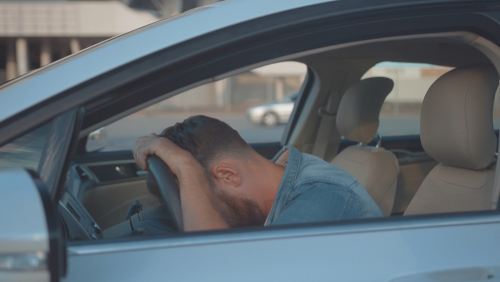
Get your disability parking permit
If you’re eligible for a disability parking permit, we recommend applying for one. Not only does it stand to improve your experience parking in public spaces, you’re also eligible for 25% off our specialist mobility car insurance, which even covers mobility equipment in your car.

